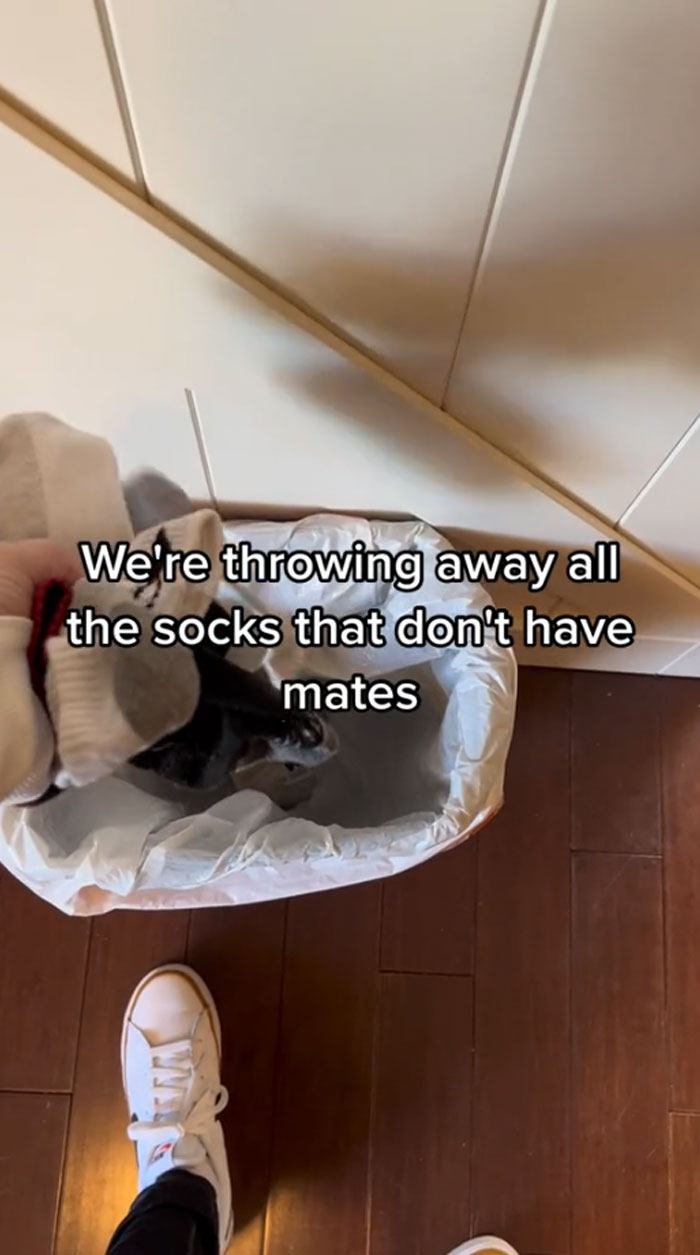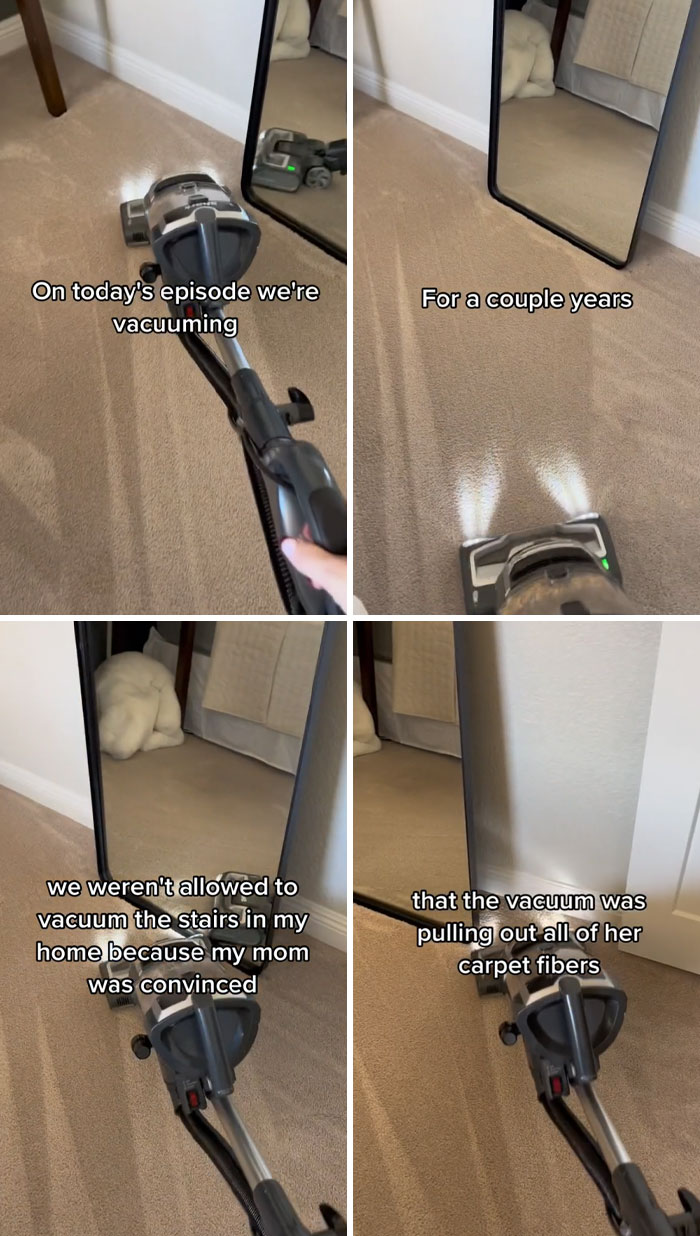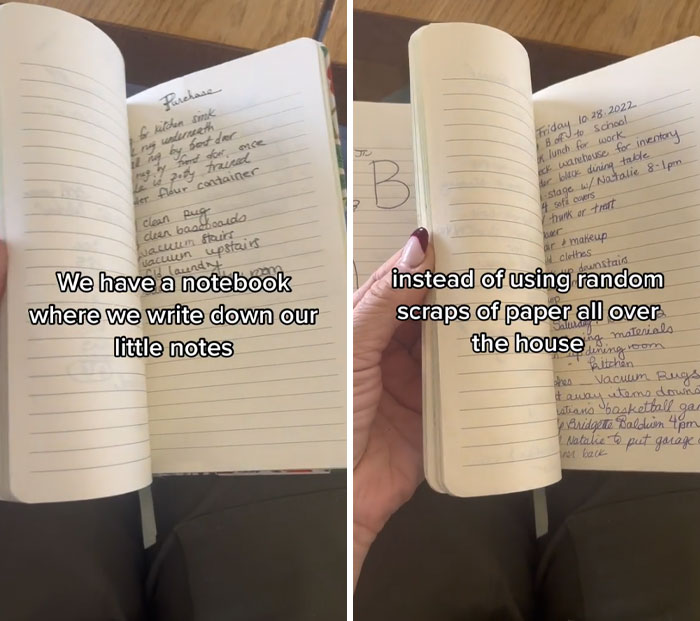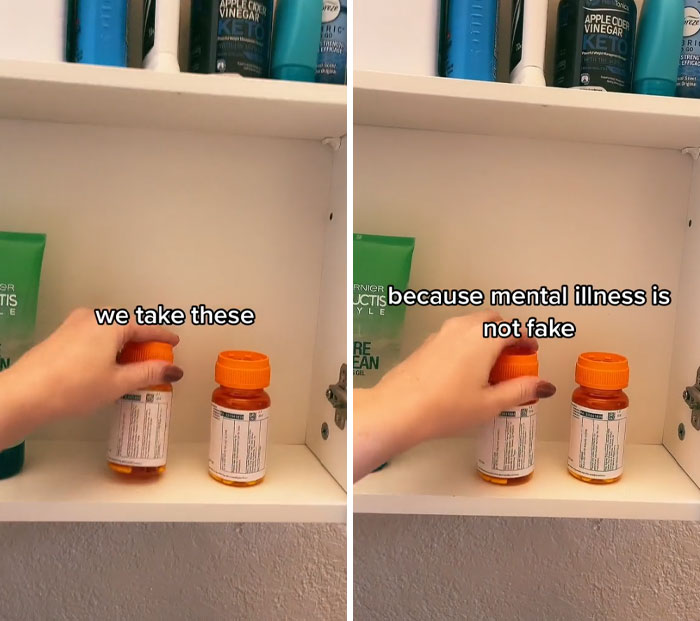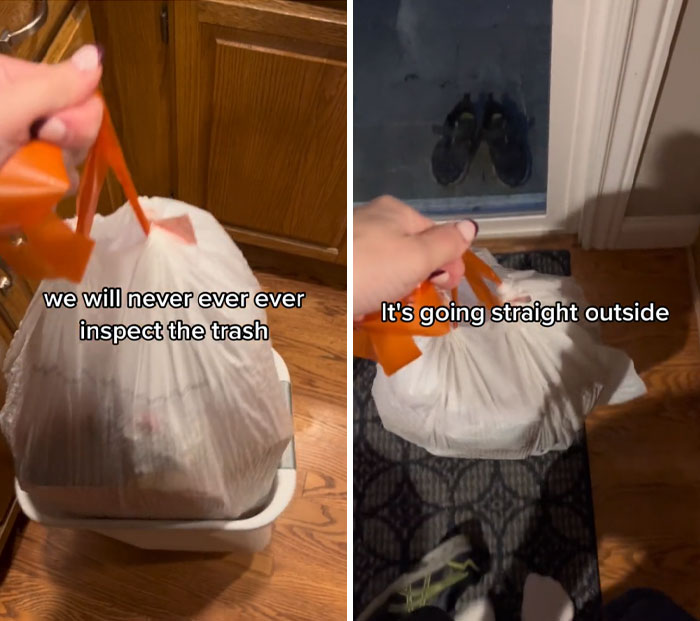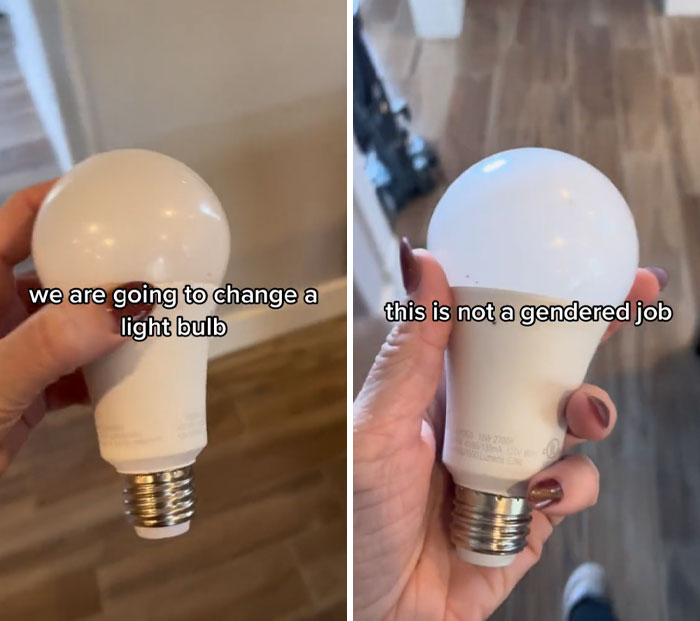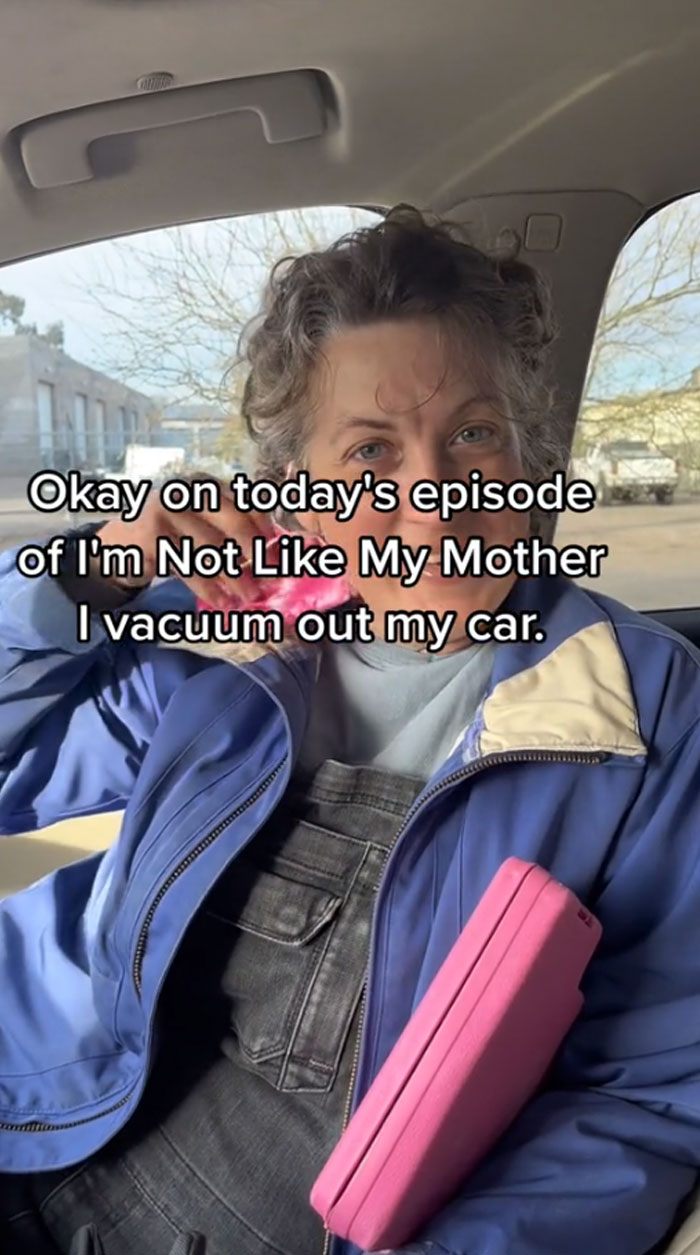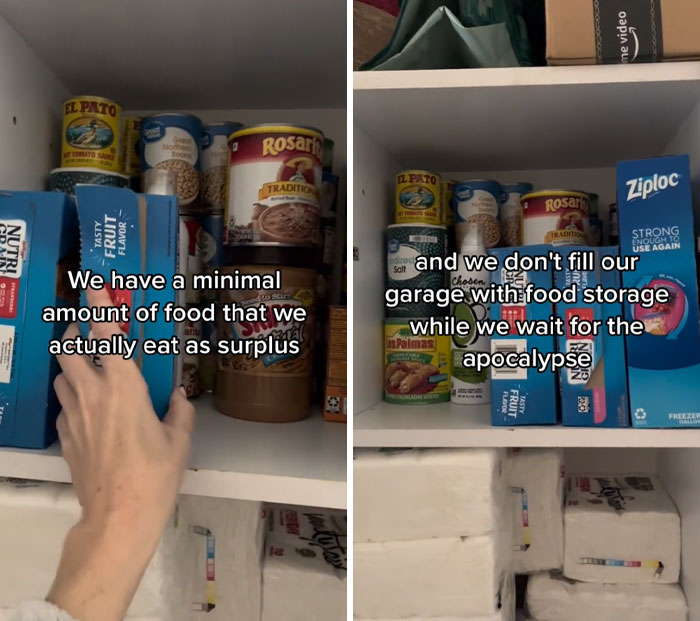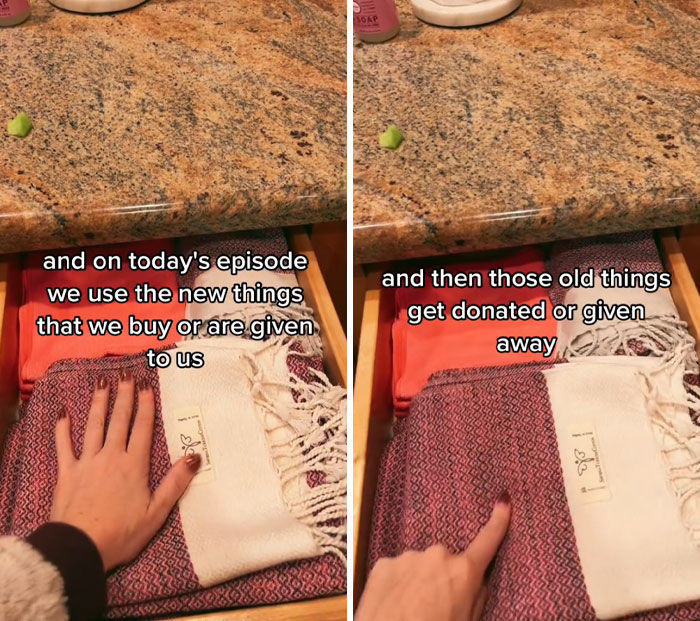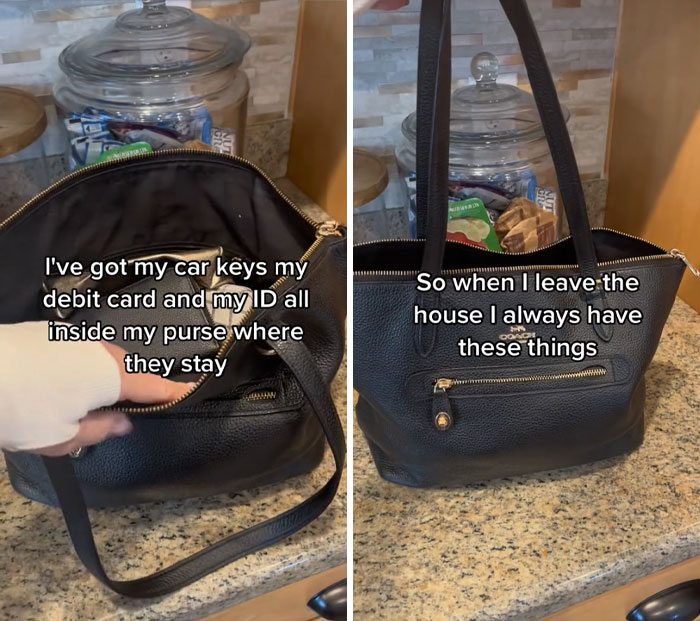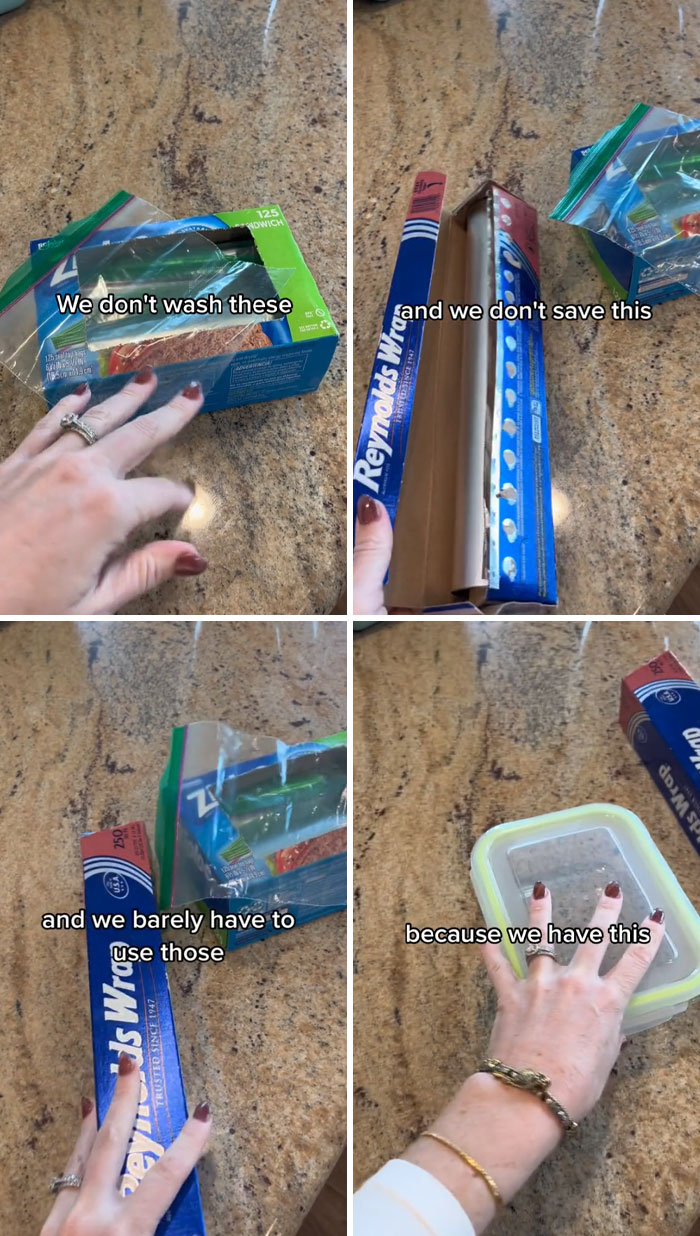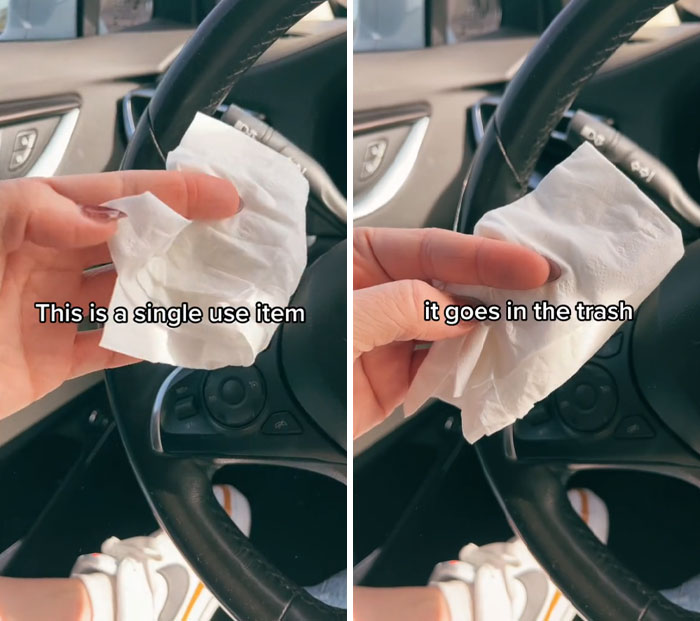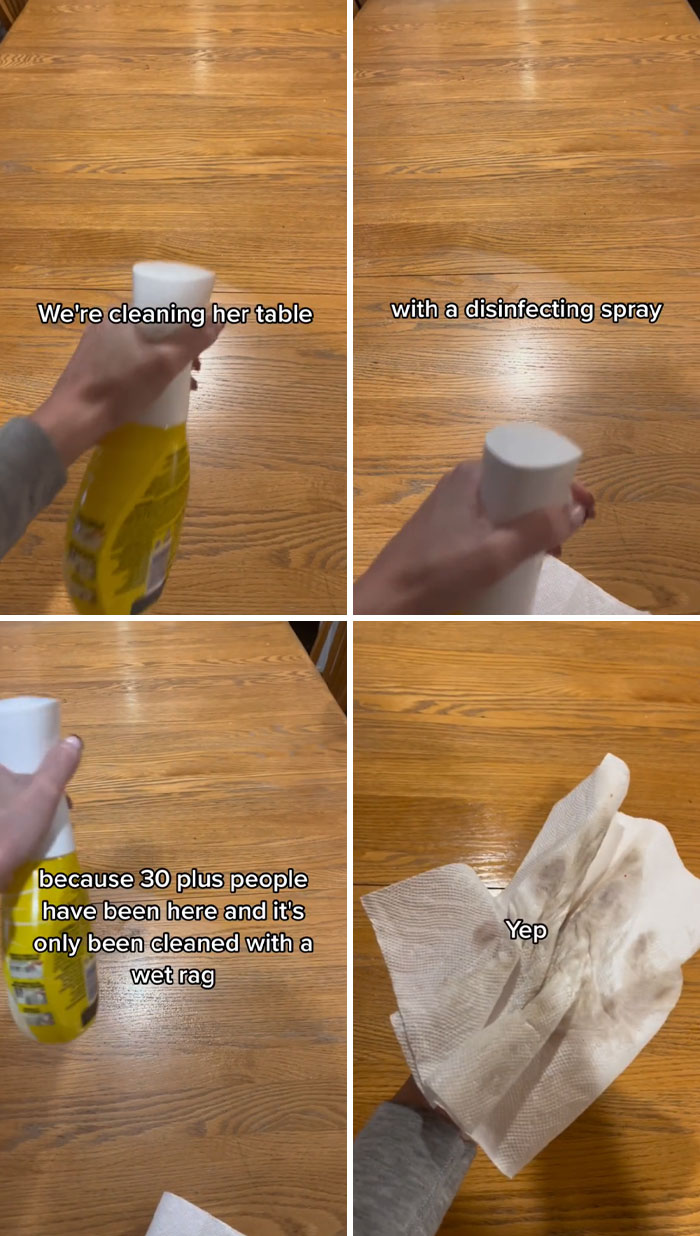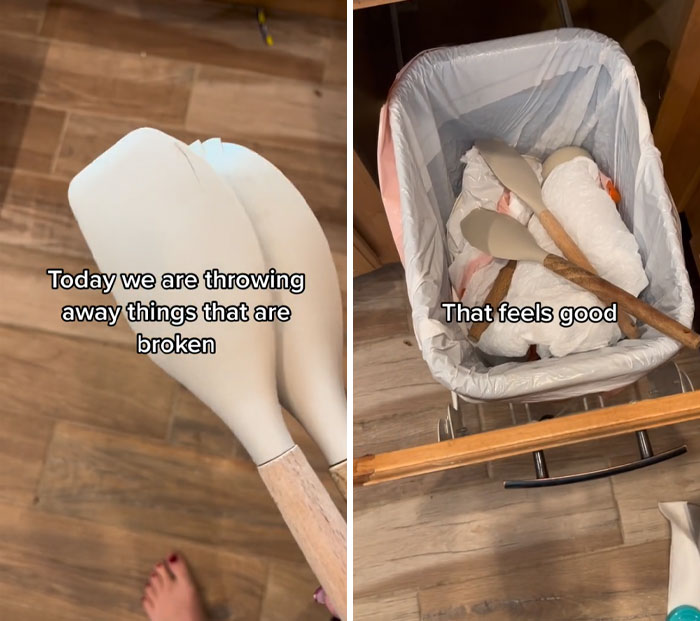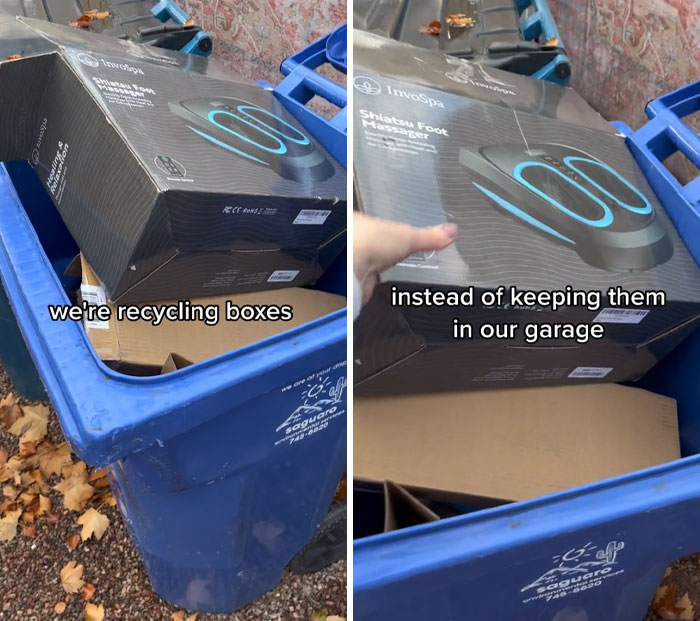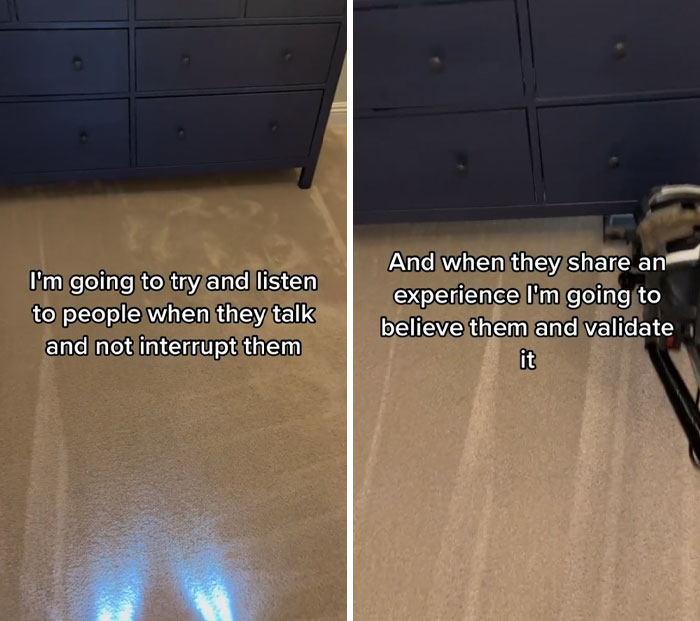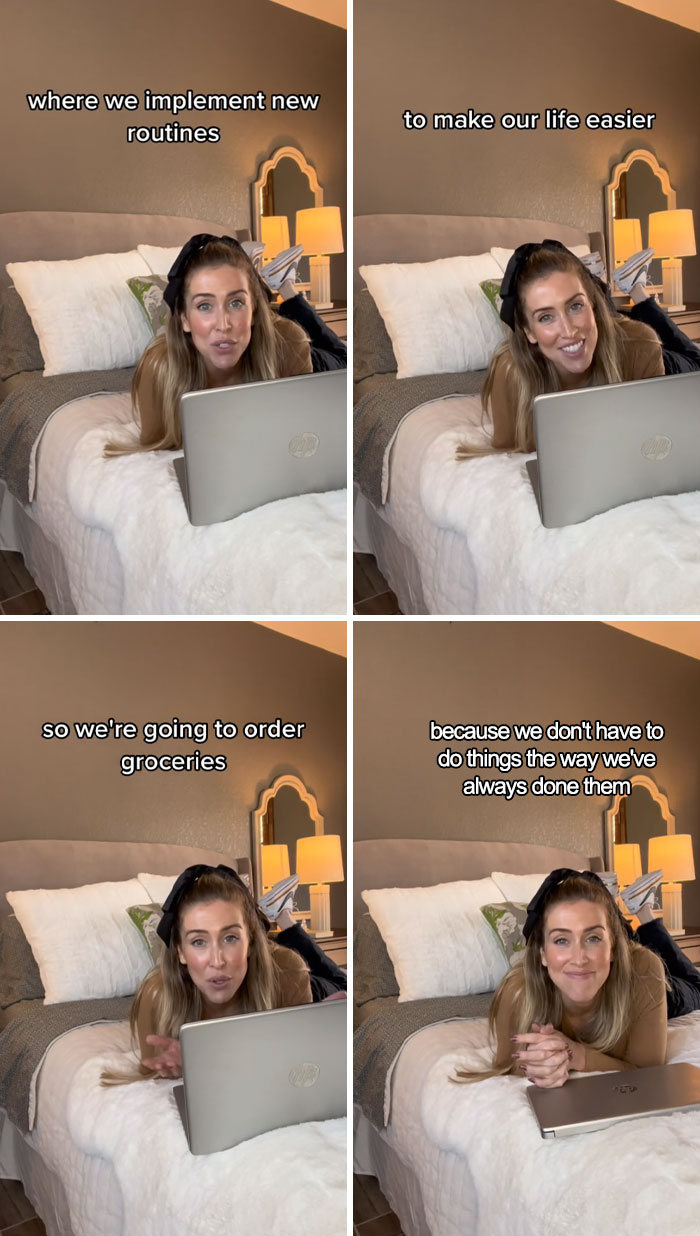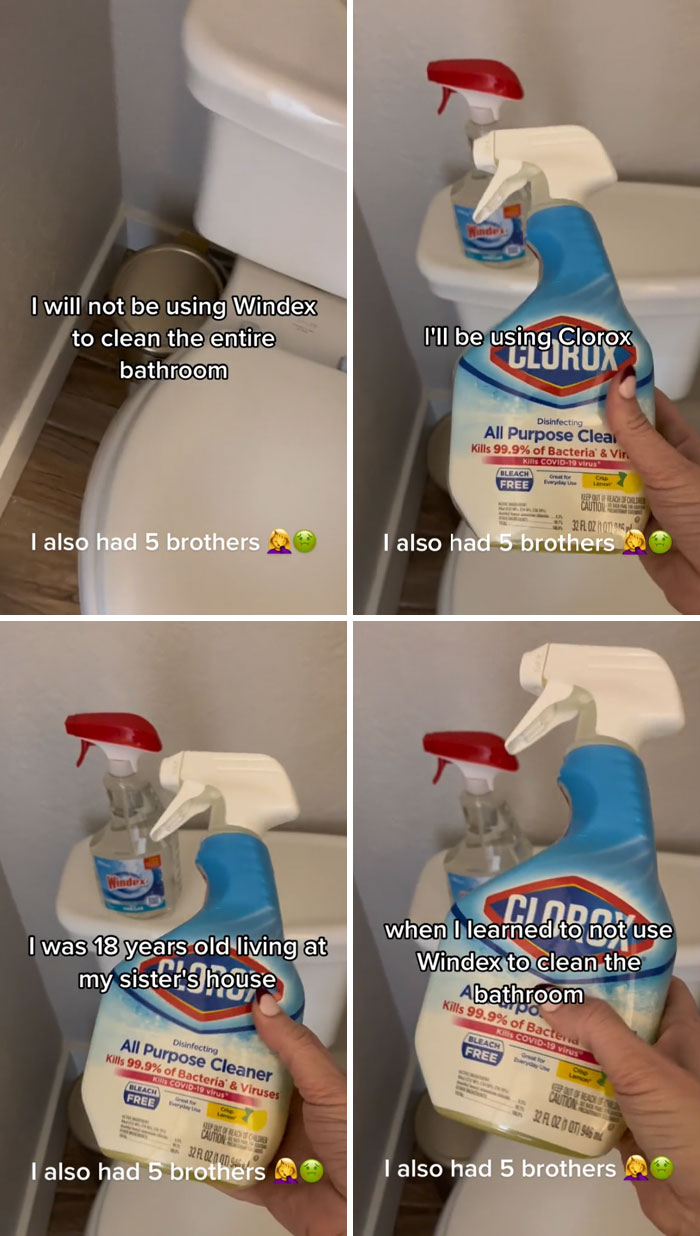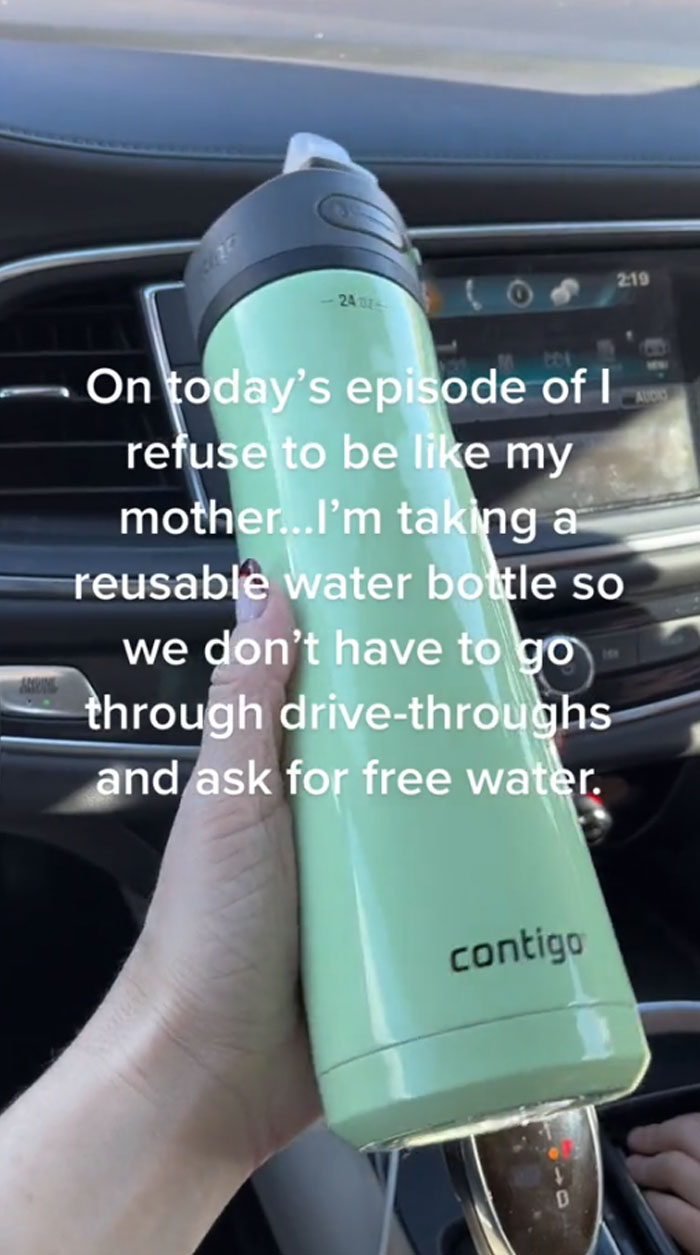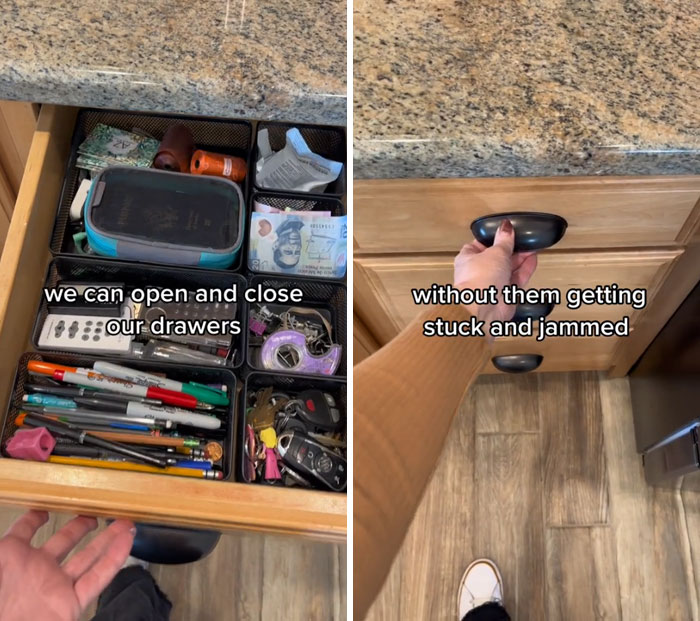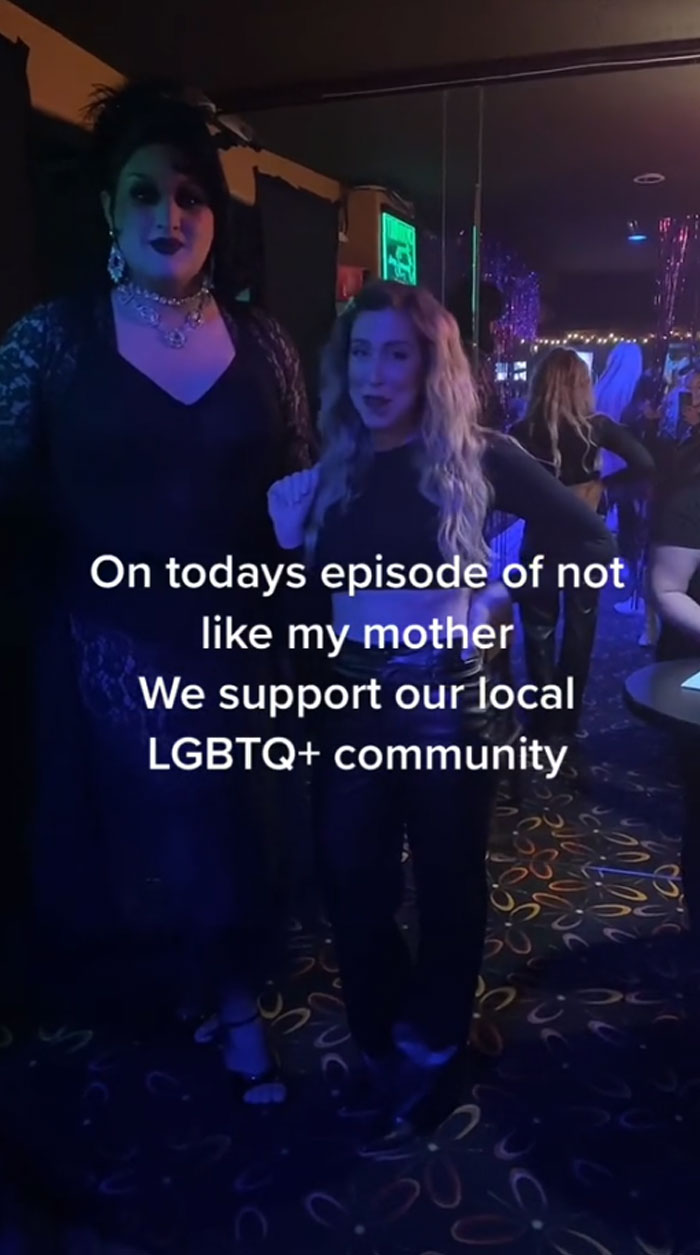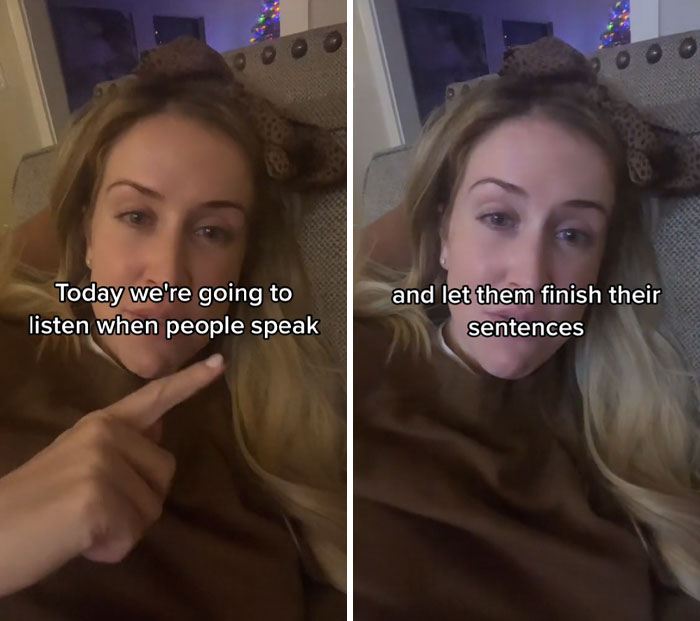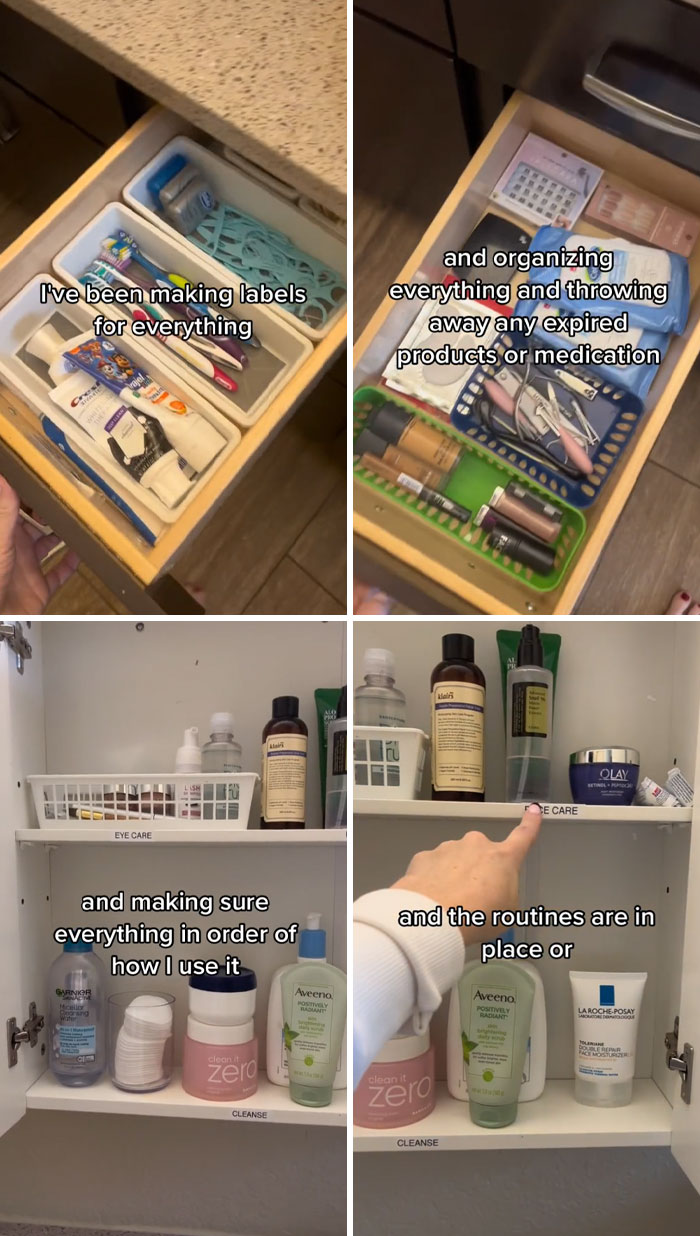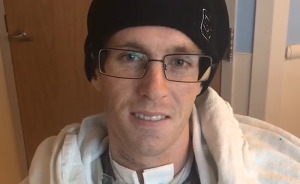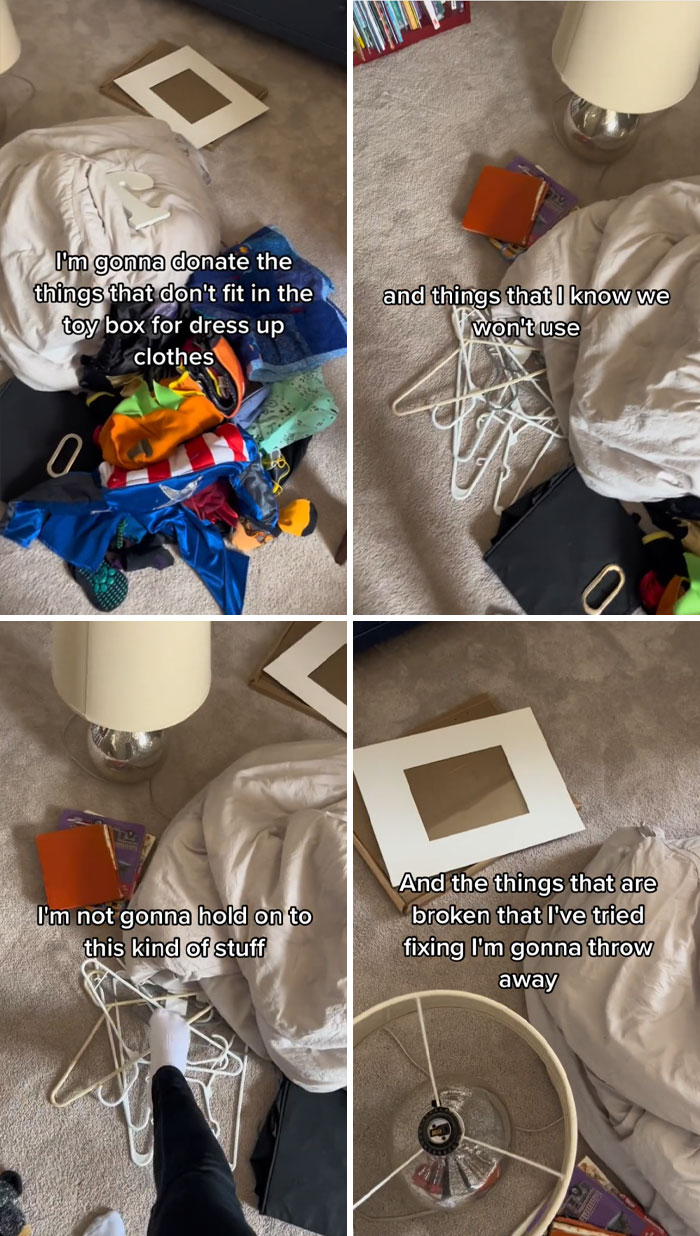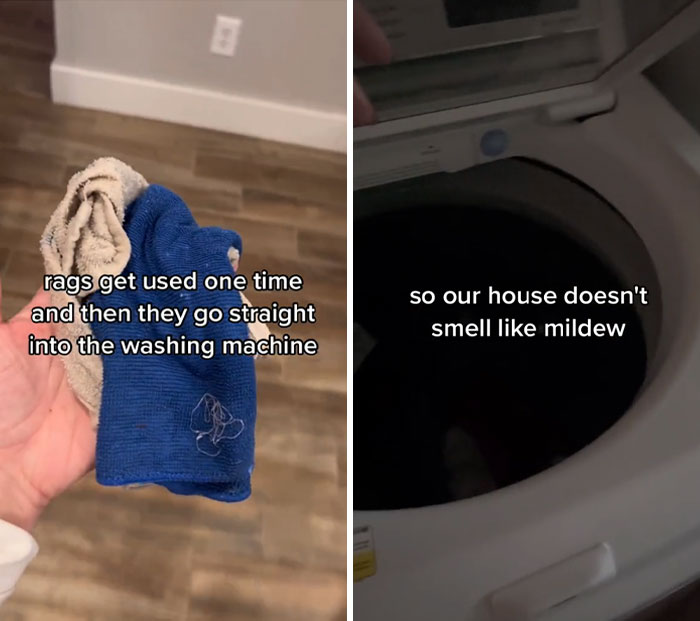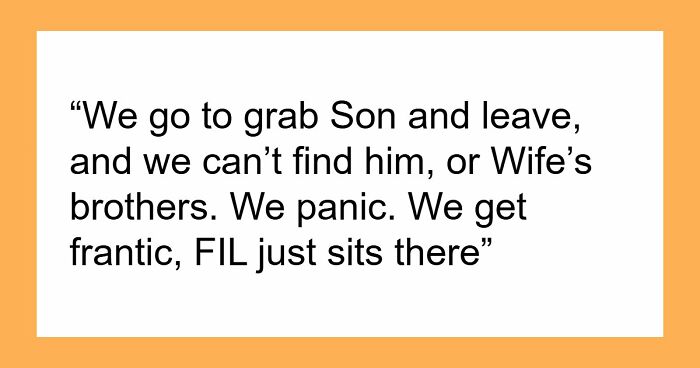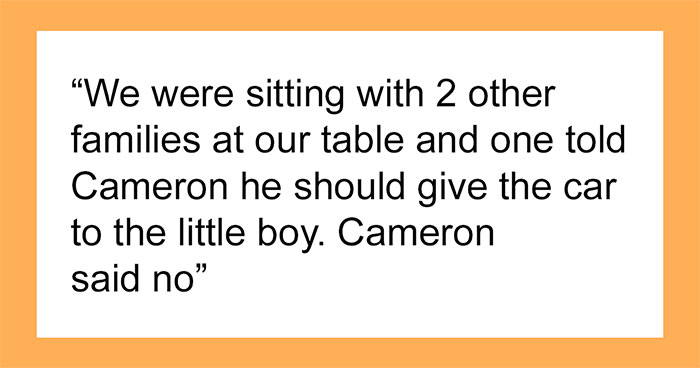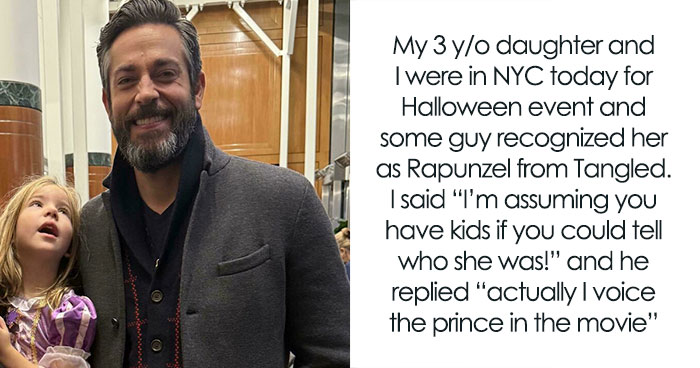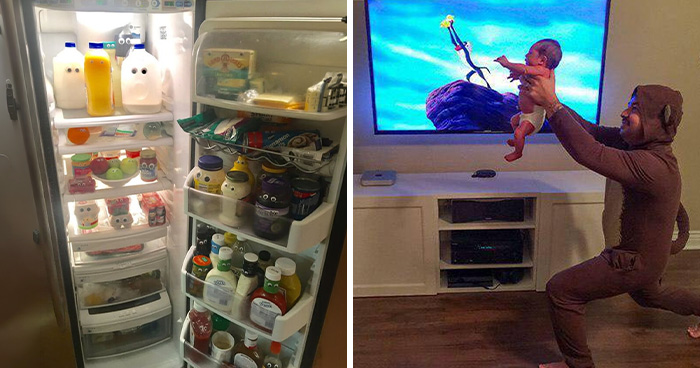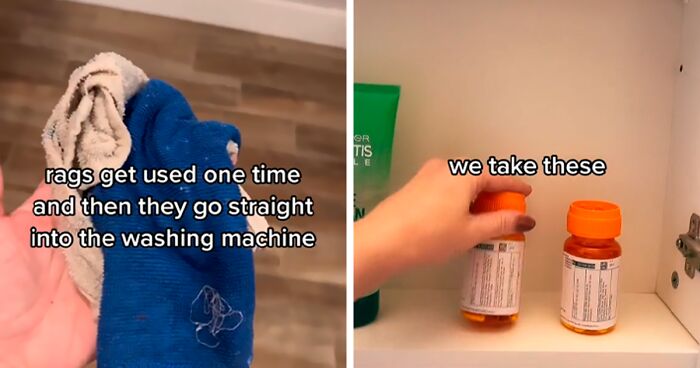
“I Refuse To Be Like My Mother”: Woman Shares 29 Things She Will No Longer Do Like Her Mother
They say that the apple doesn’t fall far from the tree. But what if the apple doesn’t just fall nowhere near the tree, but does everything to roll in the opposite direction? Because the truth is not all kids want to be mirror images of their parents, and when they grow up, they often want to be nothing like their mom and dad.
Speaking of moms, there is a TikTok creator who runs her hugely popular channel “Not Like My Mother.” With a whopping 8.2 million total likes, the TikToker Meesh has won hearts just by sharing hilariously accurate and painfully relatable videos in a series with the same name–Not Like My Mother.
“Healing with humor & new habits,” the description of Meesh’s TikTok channel says, adding that it’s “100% satire” and “100% truth.” Scroll down to see how the creator does everything not to copy her mother in various situations and walks of life, which will surely ring a bell to many of you there!
This post may include affiliate links.
In order to find out what are the reasons why adult children don’t want to be like their parents, Bored Panda reached out to Emily Malamet, a clinical psychologist and psychotherapist from Paris Psychology Centre, who shared some very interesting insights.
Malamet told us that it can surely happen that certain adult children don’t want to behave like their parents. “It is possible that adult children had witnessed certain parental behaviors growing up that they didn’t appreciate or were harmful to their wellbeing or that of their family, and don’t want to recreate this in their own lives/or as future parents,” the clinical psychologist said.
That's nice, but what if you need to make a note when you're upstairs, or in the garage, or on the other side of the house from where your notebook is? XD There's nothing wrong with using random scraps of paper to write down memos and notes, as long as you dispose of them accordingly once you don't need them any more.
Moreover, certain individuals are afraid to be like their parents or engage in similar behaviors, Malamet said. “For some, early experiences with parental figures can leave emotional wounds, which are feelings which we were particularly sensitive to as children that may be easily triggered by others in the present.”
Malamet explained that it is important for these individuals to work on being sensitive to experiences they may be triggered by, what others do that can trigger these reactions, and let those close to them know about it. “This is implies being assertive and letting others know what they may need. By doing what they couldn’t do as a child, they can work on repairing these old emotional wounds.”
WHO SAID IT IS A GENDERED JOB??? Where did this woman come from where changing a f*****g lightbulb is a "gendered job"???
When asked what are the reasons why some grown-up children decide to cut off their parents, Malamet said that there are many of them, but the most common reasons are (but are not limited to): “abuse and neglect during childhood, difference in opinions, having previously felt controlled by their parents, perceived lack of support, having been put in unsafe environments by their parents growing up, high expectations from their parents, mental health issues (being experienced by the adult child or their parent), traumatic events experienced with their parents growing up, parental divorce, or favoritism towards one child in the family,” the clinical psychologist concluded.
Anyone else think the tree behind her was her hair sticking out? 😂
As the generations progress, it’s natural for adults to want to separate themselves from their parents. With the ever-changing world, it’s difficult for adults to stay connected with their parents' values and experiences.
Adults today are faced with a unique set of challenges that are vastly different from their parents’ experiences. This can make it difficult to relate to their parents, and it can also create a sense of disconnect when it comes to values and beliefs.
Just think of how much technology and the internet changed the way we communicate, learn, and work. Meanwhile, the job market has shifted, with many jobs that didn’t exist when their parents were young. This means that the methods of achieving success and finding fulfillment can be vastly different from what their parents experienced.
To be fair, there was a marketing push through the 70s and 80s as to how bad butter was for you and how much healthier it was to use 'plant oil' margarine.
The desire for adults to separate themselves from their parents may be also driven by the idea of personal growth. Many adults want to create their own paths and avoid following in their parents’ footsteps. They don’t want to be limited by their parents’ expectations and beliefs, and they want to explore their own interests and passions.
Moreover, adults today may feel a sense of responsibility to make a difference in the world. They may feel a pressure to use their skills and resources to address the issues facing the world today, and this may lead them to create their own version of success.
A growing number of studies also show that adults today more often cut ties with their parents than ever before. A study in 1997 explored family relationships in later life and found that 7 percent of adult children had cut ties with their mother and 27 percent with their father. Meanwhile, in 2020, a study by sociologist Karl Pillemar showed that 1 in 4 Americans are estranged from their families—roughly 67 million people.
I wear a wallet chain! I never lose my wallet because it's clipped to my pants! Though I do have to remember to switch it to whichever pair of pants/shorts I'm wearing that day from the previous day's pants XD
I cleaned my student tables with donated baby wipes. Same thing. Those wet soapy sponges look like they are cleaning but until you wipe the table after with a baby wipe you have no idea how dirty they still are. Art class. At the end of every class. An article I read of where kids get germs in school prompted this. It was a precovid article.
The Millennial urge to keep the boxes that our cell phones came in. I was born in '84 and I still have no idea why I do this. But, thanks to the Internet, I know I'm not alone.
Aaah the optimism in this... sure, when someone tells the same story you've heard a few times before, go on and listen it out. And don't interrupt someone who is having a monologue and making wrong assumtions along the way. And when they say they believe their hause is haunted and it should be burned down, believe it and encourage them... Point being: It's a nice concept but not good to use always.(Or maybe she means when people talk about certain subjects?)
Bleach has been proven to only lighten disperse mould spores not kill it, and is horrendous for the environment. Where I live, council cleaners are not allowed to use bleach, even if the customer provides it, for health and safety reasons. If you are worried about mould or germs, double-strength (cleaning) vinegar should be used, according to British scientific studies. Mould specific cleaners can be used if it is an established problem.
Thank you! I hate that people still won't carry something to drink with them . Don't leave home without it.
An alternative, if you are not using the washing machine every day, is to have bucket of water, with some disinfectant in the water. When you use a cloth drop it into the water. When the bucket is full, or you're doing a load of laundry, add the rags. If you are using a front loading washing machine, put the rags into a laundry bag.
Wow, she sounds very bitter! I don’t know how wealthy their family was when growing up, but hoarding can come from fear of running out of something or not being able to afford to replace it. Of course I’m sure all our parents do strange things, or say awful things, sometimes without meaning to, or absolutely meaning to! Maybe it sounds less spiteful watching it.
That's exactly what I was thinking! "Wow, this seems bitter." I imagine she had a difficult childhood, but this post seemed kind of excessive.
Load More Replies...Wow, she sounds very bitter! I don’t know how wealthy their family was when growing up, but hoarding can come from fear of running out of something or not being able to afford to replace it. Of course I’m sure all our parents do strange things, or say awful things, sometimes without meaning to, or absolutely meaning to! Maybe it sounds less spiteful watching it.
That's exactly what I was thinking! "Wow, this seems bitter." I imagine she had a difficult childhood, but this post seemed kind of excessive.
Load More Replies...
 Dark Mode
Dark Mode 

 No fees, cancel anytime
No fees, cancel anytime 


